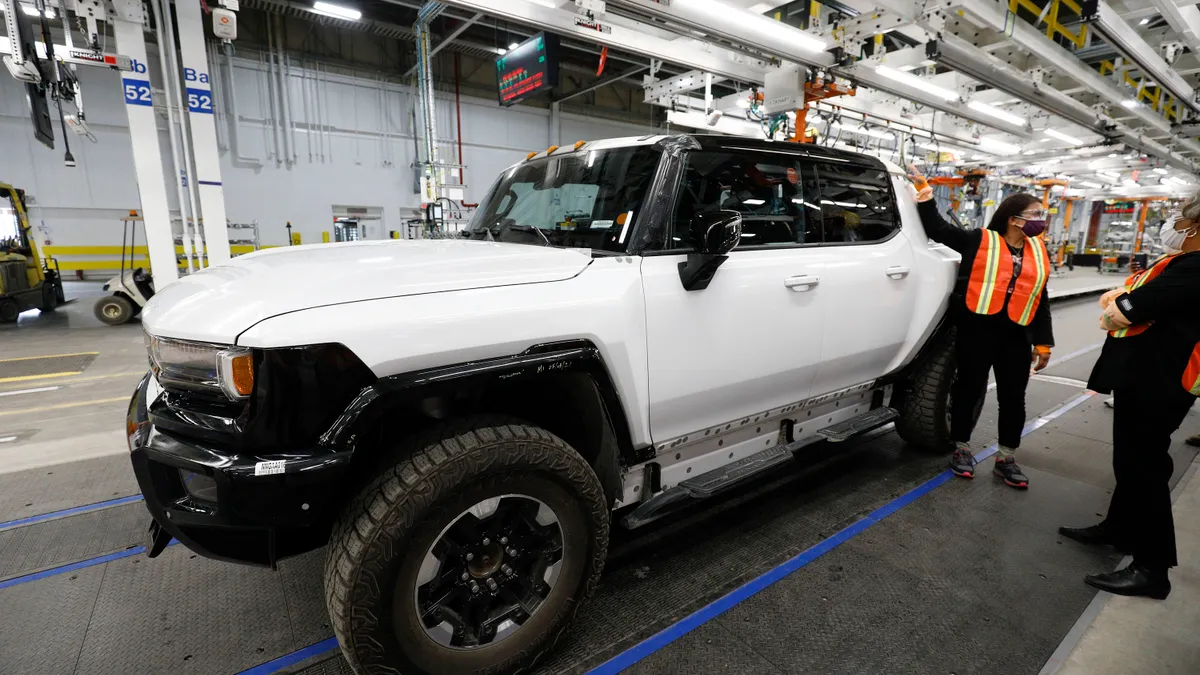Charla Long is executive director of the Competency-Based Education Network and Stacey Clawson is associate vice president of Jobs for the Future.
Millions of jobs lost in the pandemic aren't coming back, and many of those vanished positions were disproportionately held by people of color. As automation and other shifts accelerate, many of these displaced workers will need additional education and training to find new roles, as well as a rapid return on their educational investment. This means more of the short-term credentials that are getting so much attention these days — but it also means faster pathways to an associate or bachelor's degree, both of which have greater proven value in the labor market.
Faster, more responsive pathways to degrees are essential for Black and Latino workers who not only are underrepresented in higher education but also often face biased hiring systems that make the signal of a degree especially powerful. We have, of course, recognized this need for years and failed to make much progress.
That's because we remain stuck on trying to improve our current model of higher education. To achieve real equity, we need to move to a model of learning and credentialing that focuses on what a student truly knows and can do — their competencies — rather than arbitrary markers of success, like the years they spent in a classroom. In other words, don't fix the system. Remake it.
Education based on competencies, rather than time alone, has the power to deliver equitable economic advancement. First, it allows learners to move at their own pace, and second, it creates tight connections to high-demand knowledge, skills and behaviors in demand by employers.
This approach can be particularly powerful for the Black and Latino workers who have been hit hard by the economic downturn, and who haven't always been well served by traditional programs. Quality competency-based education, or CBE, provides many things we know learners need to be successful: flexibility and support, recognition of their existing knowledge and skills, and clear pathways from education to work.
But competency-based education remains limited. Almost eight in 10 college leaders say they expect CBE to grow, but only about one in 10 actually use the approach in their programs or even single courses. And competency-based education has been all but missing from conversations about equity and economic advancement in higher education.
This is due, in large part, to higher education's focus on making improvements around existing degree programs. Colleges have been building in approaches like better advising, refined pathways and heightened career support. Those are important — in fact, they are a core part of quality CBE — but marginal changes will likely only lead to marginal gains.
That's why our organizations recently launched The Equity Collaboratory with the aim of changing the status quo. We'll be working with institutions across higher education, from those already fully invested in competency-based education across their programs and practices to those that want to adopt its principles in just a handful of courses. The goal is to seed experimentation with this new model. Greater equity in higher education — and in labor market outcomes — is our ultimate aim.
Innovative institutions like Sinclair Community College have shown us what might be possible. Between 2013 and 2020, Sinclair has enrolled more than 2,300 students in competency-based education, in both associate and certificate programs in high-demand fields like information technology, business and advanced manufacturing. It's also piloting work to use CBE to reduce the amount of time students spend in developmental education.
The average student enters Sinclair making less than $17,000 a year, and their income typically jumps to $37,000 after they earn an associate degree. The institution's CBE programs help students make that career leap much faster. Students in CBE complete courses 30% faster than comparable students in semester-based programs, and they earn credentials at rates 10% higher. When paired with Sinclair's wraparound supports — like embedded success coaching, focused support for students of color and reduced or no-cost child care — the college's CBE programs are a powerful engine for equity and economic advancement. Nearly 30% of Sinclair's CBE enrollment comes from students of color.
That connection to economic advancement is essential. When we talk about making higher education more equitable, it's not enough to get more students from all backgrounds to earn a credential. We have to ensure that our institutions are actually delivering on the promise of moving people up the economic ladder and helping students achieve their career goals.
We don't just need a new model of higher education in our country. We need a new model for equitable economic advancement. Focusing on true competency, rather than the arbitrary markers of pedigree and time commitment, we can unlock both.






















